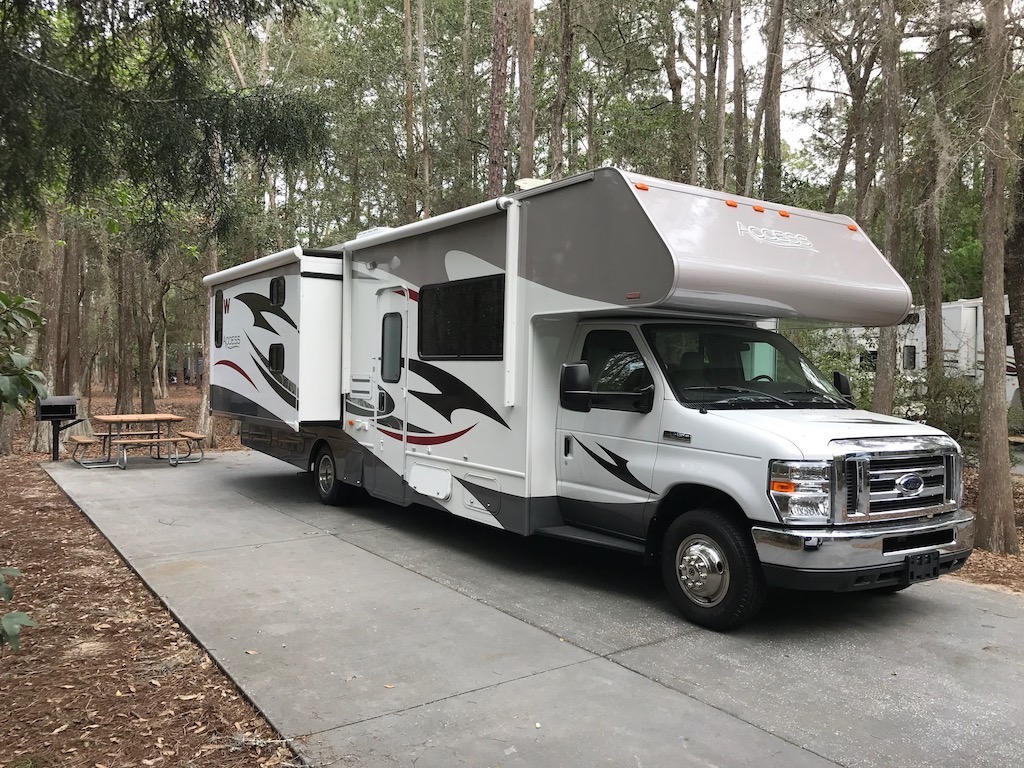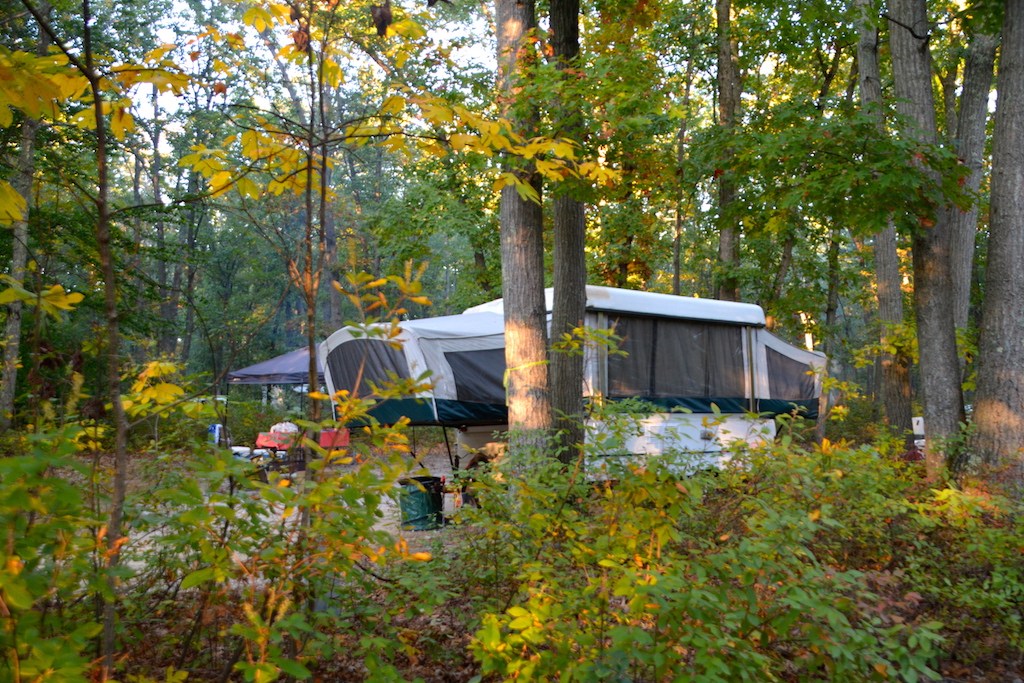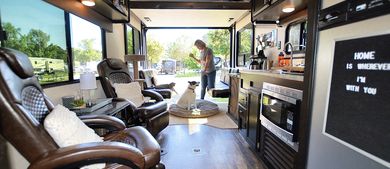There’s an RV for every camping style and budget. If you want to hold on to the rugged outdoors experience, there are RVs specifically designed for off-grid adventures. Are you more interested in feeling like your RV is a luxury vacation home? Plenty of new RVs come with stainless steel appliances, reclining living room furnishings, and residential design features.

Expert Advice
The Go RVing Guide To Buying A New RV
If you’re in the market for a new RV, there are more options out there than ever before. From lightweight travel trailers to motorized RVs with powerful diesel engines, there’s an RV for every shopping budget.

We know that shopping for an RV can be pretty overwhelming, so we’re here to help you through the process. Over years of podcasting, blogging, and presenting at RV events, we’ve talked with thousands of RV shoppers. We’ve listened to the lessons that they have learned and learned a few of our own along the way as well.
Want to find that perfect RV? Well, you first have to narrow down the RV class that will work best for your needs. Here are five questions you should ask yourself to help decide which RV type (or types) should be on your shortlist.
RELATED: Find The Right RV For You
1. Budget For Your Price Range
There is something out there at every single price point, from $7,000 folding camping trailers to $30,000 travel trailers to $200,000 motorhomes. Once you have settled on a comfortable shopping budget, it will be much easier to narrow down your options and focus on the rigs that are in the running for your first purchase.

2. Consider Your Tow Vehicle Situation
If you currently have a truck or SUV that can tow an RV, you are in good shape to buy a folding camping trailer, travel trailer, or fifth wheel. Make sure you check what your vehicle can tow before buying the RV though. Don’t take someone’s word for it — use the VIN number to get an accurate number. There can be a wide variety of towing capacities for the same automobile model because of optional packages.
RELATED: Beginner's Guide to Hitching, Driving, and Towing an RV
However, if you don’t already have a tow vehicle, carefully consider a motorized RV purchase. The price of a tow vehicle, plus a towable RV can easily be equal to a Class C price. (There’s no reason to give up that great commuter car if you don’t want to).

3. Evaluate Your Travel Companions
Some new RVers shop thinking about anyone and everyone who may at some point join them on their travels. It’s a good idea to focus on shopping for the people (and pets) that will be in the RV most of the time. If you’re considering towable RVs, does everyone in the family have a comfortable seat in the tow vehicle? If you’re looking at motorized RVs, make sure there are seatbelts for all travelers and think about where to place necessary car seats.

4. Figure Out Your Travel Style
Most RVers fit into one of three categories: Road trippers, destination travelers, or seasonal campers. We tend to be road trippers, heading out for weeks at a time and visiting lots of different locations. This means we like an RV that’s easy to hitch and unhitch. We also don’t want to worry too much about height restrictions when traveling around our native Northeast region.
Others, however, love to take their RVs to just one amazing spot and set up camp for a week-long vacation. For them, a spacious fifth wheel might fit the bill. Traveling in more urban places? Check out Class Bs. Want to cover a lot of distance in comfort and style? Class Cs or Class As are often perfect cross-country options.
5. Think About Your Camping Style
Do you prefer public or private campgrounds? If you’re new to RVing, this may be a tricky question to answer, but here’s a quick overview. In general, public campgrounds tend to be more rustic and natural. But they also tend to be older and less modernized. So if you know you want to stay in state and national parks, make sure you don’t purchase an RV that’s too big for the majority of the campsites. The rule of thumb is to buy an RV that’s less than 30 feet if you want to camp mostly in public campgrounds. Also consider the size of your holding tanks if you think you’ll be dry camping or boondocking often because you’ll want larger capacities to stay off the grid longer.

RELATED: Things to Consider when Selecting the Right Campsite
On the other hand, private campgrounds often offer pull-through campsites that can accommodate rigs up to 40 feet long. So if you know you prefer modern amenities and full hookups, go ahead and get that larger fifth wheel or Class A.
When you imagine that RV dream, what does it look like? Are you escaping from the city and heading for off-the-grid adventures? Maybe you’re driving all over the U.S., stopping at urban destinations and national parks. No matter what your RV dream is, there’s a rig that will be perfect for it.










